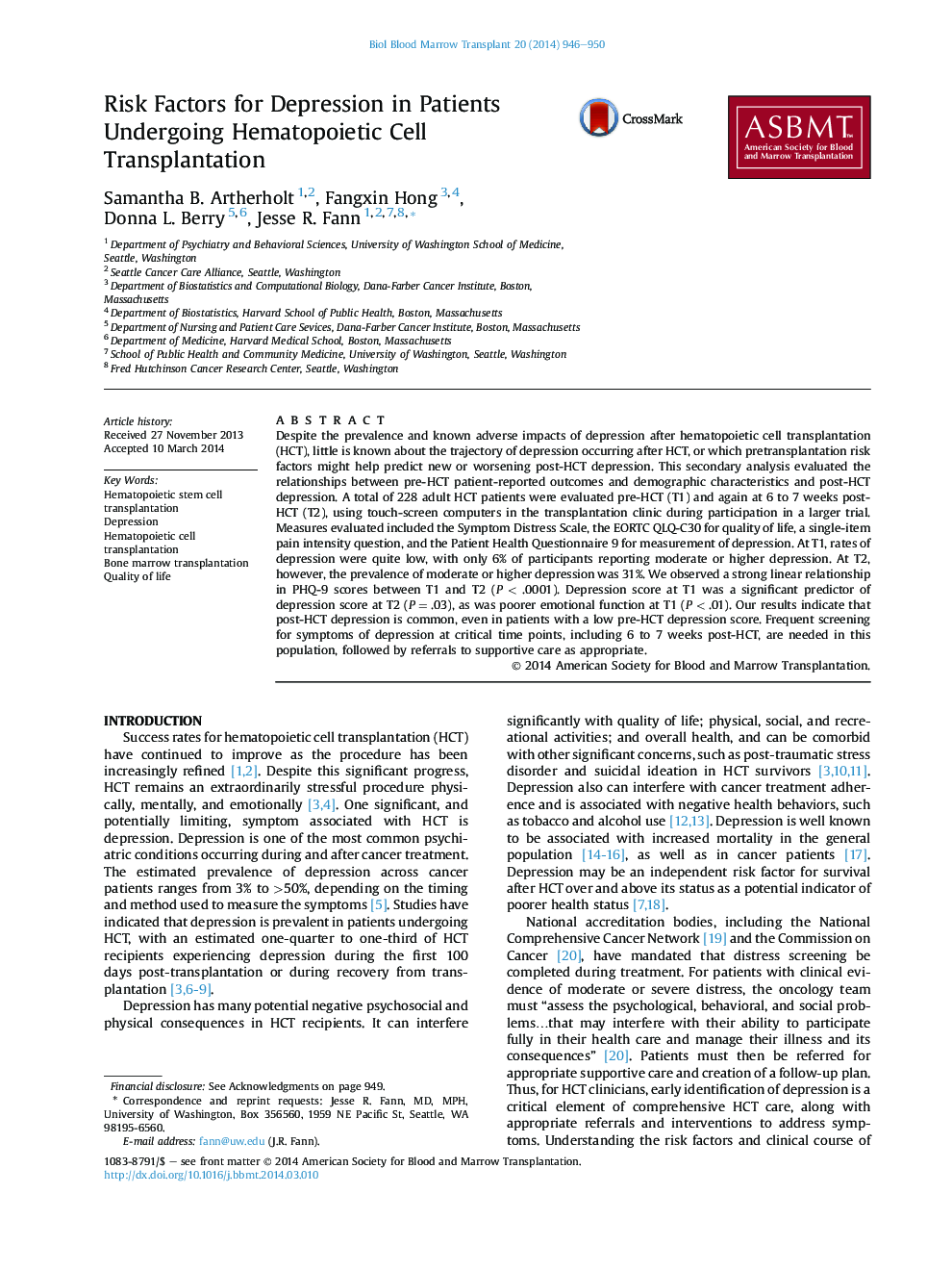| Article ID | Journal | Published Year | Pages | File Type |
|---|---|---|---|---|
| 2102307 | Biology of Blood and Marrow Transplantation | 2014 | 5 Pages |
Despite the prevalence and known adverse impacts of depression after hematopoietic cell transplantation (HCT), little is known about the trajectory of depression occurring after HCT, or which pretransplantation risk factors might help predict new or worsening post-HCT depression. This secondary analysis evaluated the relationships between pre-HCT patient-reported outcomes and demographic characteristics and post-HCT depression. A total of 228 adult HCT patients were evaluated pre-HCT (T1) and again at 6 to 7 weeks post-HCT (T2), using touch-screen computers in the transplantation clinic during participation in a larger trial. Measures evaluated included the Symptom Distress Scale, the EORTC QLQ-C30 for quality of life, a single-item pain intensity question, and the Patient Health Questionnaire 9 for measurement of depression. At T1, rates of depression were quite low, with only 6% of participants reporting moderate or higher depression. At T2, however, the prevalence of moderate or higher depression was 31%. We observed a strong linear relationship in PHQ-9 scores between T1 and T2 (P < .0001). Depression score at T1 was a significant predictor of depression score at T2 (P = .03), as was poorer emotional function at T1 (P < .01). Our results indicate that post-HCT depression is common, even in patients with a low pre-HCT depression score. Frequent screening for symptoms of depression at critical time points, including 6 to 7 weeks post-HCT, are needed in this population, followed by referrals to supportive care as appropriate.
